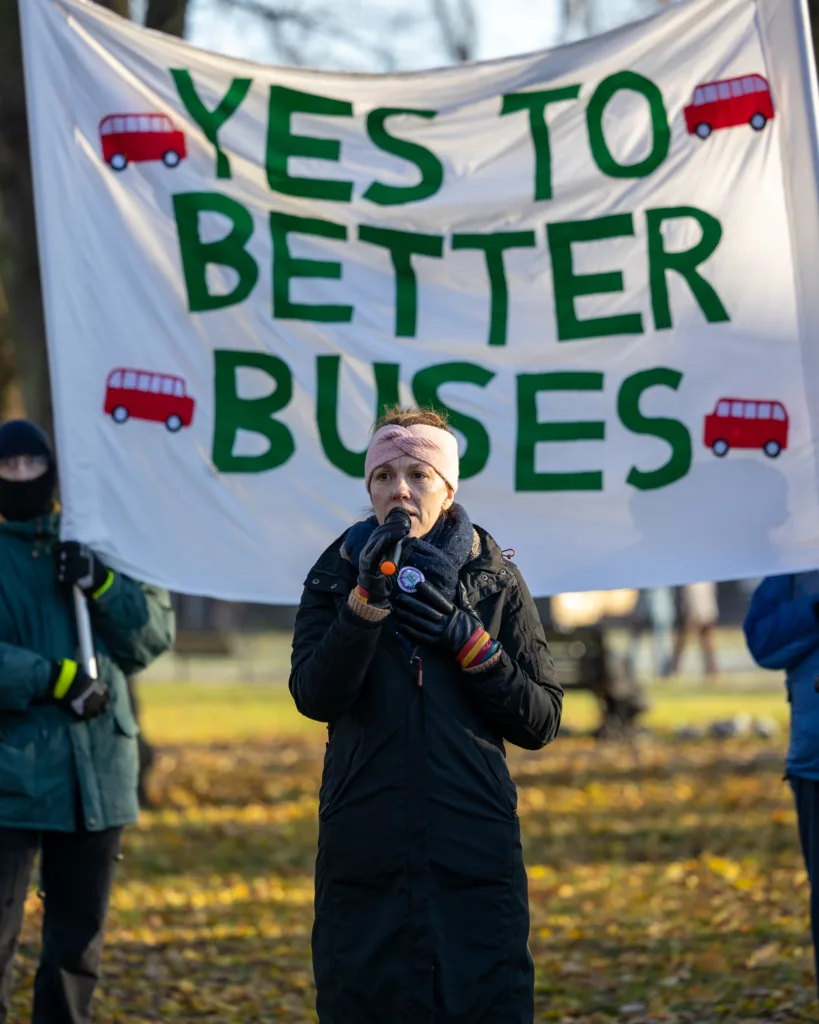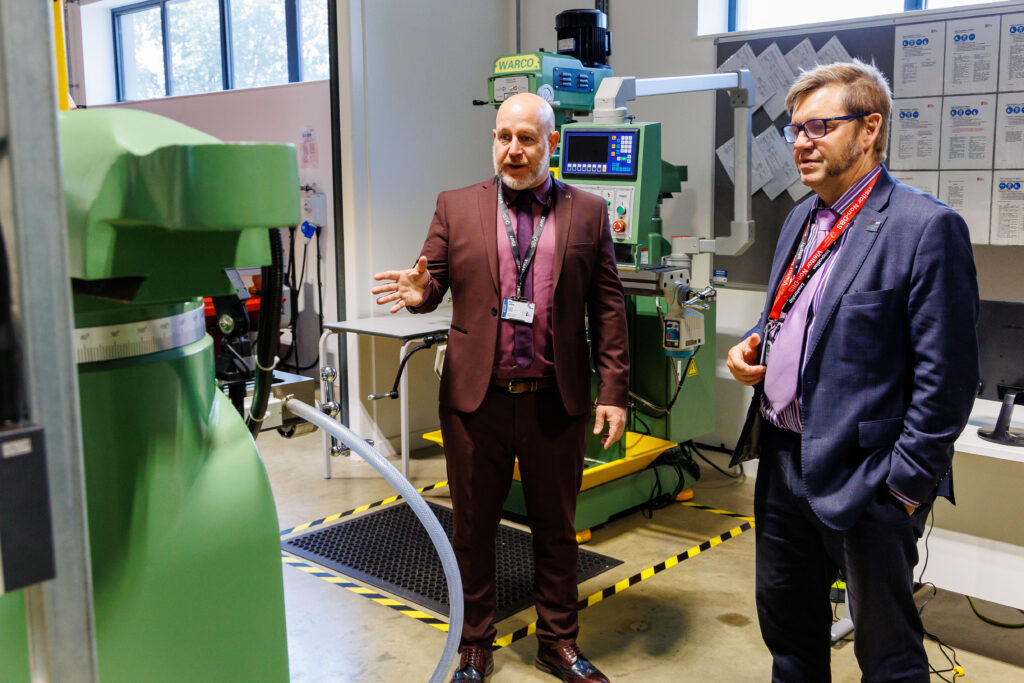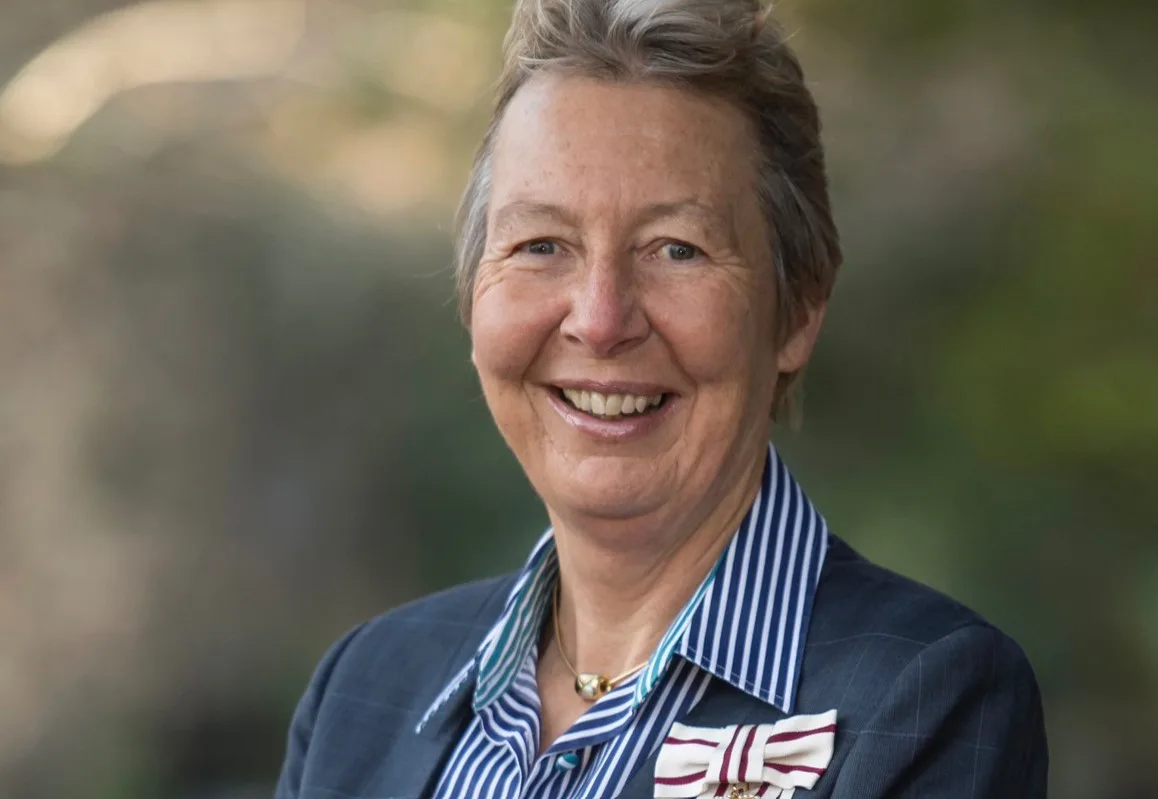Cambridge Area Bus Users was set up to ensure that the bus passenger’s voice – your voice – is heard.
It campaigns to see improvements to bus services in the Cambridge area.
And a key question it frequently poses is how, when or if there will be joined up thinking to halt the decline in services.
In 2023 the big talking point – offering the prospect of major overhaul and improvements – is bus franchising.
Here, in an article first published on our website, is bus franchising explained.
Bus franchising: what is it?
The Bus Services Act 2017 – passed under a Conservative government, with all-party support – provides Mayoral Combined Authorities (including the Cambridgeshire and Peterborough Combined Authority) with the powers to implement bus franchising in their area, akin to the system operated by Transport for London.
The current situation
Bus services outside London were deregulated in 1986. Since then, there have been two systems of bus provision – one for London and one for the rest of Britain.
In London, Transport for London (accountable to the Mayor) specifies what bus services are to be provided. TfL decides the routes, timetables, and fares. The services themselves are operated under contract by private companies* through a competitive tendering process.
[* These companies include Stagecoach, First Bus, Go-Ahead, Arriva and others.]
In the rest of the country, it’s a free market, meaning that anyone (subject to minimum safety and operating standards) can operate bus services.

Bus operators are free to run whatever services they like, [decide] the fares they will charge and the vehicles they will use. This results in an uncoordinated network with a confusing array of ticketing options.
Although in theory it is a competitive market, in reality most bus services are now provided by five large companies who rarely compete against each other (Arriva, First, Go-Ahead, National Express and Stagecoach).
Operators focus on the most profitable journeys, with local transport authorities having to pay operators to run journeys on some routes that are socially necessary.
What does franchising offer?
Under bus franchising, the deregulated bus market is suspended and bus operators are only able to provide services under contract to the local transport authority.
This approach is used extensively across Europe, in London and elsewhere as it offers a range of significant advantages that are impossible under partnership – such as integrated ticketing, network planning, cross subsidy across bus services and other modes and unified marketing.
In short, franchising brings together the strengths of private operators in efficient service delivery but within a co-ordinated and planned public transport network… [allowing] the sensible co-ordination of bus services within a competitive market that drives operators to deliver better value for the public purse. [Urban Transport Group, Briefing document]
Further reading
- The Bus Services Act 2017 – New powers and opportunities [DfT 2017, PDF]
- Three stages to better bus services using the Bus Services Act [Campaign for Better Transport, July 2018, PDF]
- Practical bus franchising – the Jersey model [HCT Group, 2016, PDF]
What are the operators’ views?
In 2018, Andy Campbell, then managing director of Stagecoach East, wrote for the Cambridge Independent newspaper:
It’s easy to make a sweeping statement to say that bus franchising is the answer to everything, when in reality there are plenty of smaller, practical details that would make a huge difference to the reliability of bus services in and around Cambridge – and at minimal cost.
Read the full article here: Franchise the buses? You need money in the tank.
Whereas Whippet Coaches held (and still hold) the opposite view:
We strongly believe that a franchising model, like that of London, will create the conditions for high-quality bus services to be operated with the single-minded purpose of serving the community here in Cambridgeshire.
Full statement here.
Charlie Hamilton, then Managing Director of Whippet published a response to Andy Campbell, again in the Cambridge Independent newspaper.
Franchise the Buses? You need money in the tank (May 30 – June 05, 2018) clearly sets out a view of an operator who is fearful of losing their stranglehold on a region which deserves much more from a public transport network.
Unfortunately, the article is littered with misrepresentations in a poor attempt to guide the reader away from the opportunity that franchising presents – please allow me an attempt to provide some clarity to the matter.
Contrary to what my industry colleague says, the London bus franchising system is admired throughout the world and has seen passenger numbers grow since de-regulation of buses in the 1980s whilst outside of London it has fallen dramatically (DfT Annual Bus Statistics report). Read the full article here: Response to Article on Bus Franchising from Stagecoach East (PDF 64KB)
Whilst trade magazine Route-One reported:
The imminent Bus Services Bill may have thrown up a lot of uncertainty in the industry, but there is one rural operator in the UK that advocates a franchising regime.
It’s not surprising, seeing as Cambridgeshire-based Whippet has been owned since 2014 by Tower Transit*– a British bus operator with an Australian heritage, with strong businesses in London and Singapore, both of which are franchised.
A re-regulated industry would make it far easier for Tower Transit to compete with the big operators in cities, not least in Cambridge, nine miles from Whippet’s Swavsey depot.
* Note: Tower Transit later de-merged, with Whippet’s ownership transferring to Ascendal Group.
Read the full article here: Whipping it into shape [routeone Team – January 26, 2017]
Update on Stagecoach’s attitude to bus franchising
Did fear of protracted legal action delay progress at the Cambridgeshire and Peterborough Combined Authority? See The slow pace of bus reform at the Combined Authority, below.
Readers may be aware of Greater Manchester Combined Authority mayor, Andy Burnham’s, long legal battle to implement bus franchising.
The combined authority had been trying for years to become the first region to bring its bus system under public control, but two operators – Stagecoach Manchester and Rotala Plc – sought a judicial review.
Burnham and the combined authority won their case earlier this year. Further details are in the link below.
Judge rules in favour of Andy Burnham’s major bus reform in historic moment for Greater Manchester’s passengers
“In my judgement the mayor’s decision and the process by which the Greater Manchester Combined Authority came to recommend the scheme was lawful” [Charlotte Cox, Manchester Evening News, 9 March 2022]
However, …
In a recent ‘catch-up’ meeting with Cambridge Area Bus Users secretary, Stagecoach East’s Operations Director, Ross Barton, expressed the view that whilst the company would prefer to work in partnership with local authorities, they could ‘live with’ franchising, if that was the decision which the Combined Authority reached.
And two independent views
Edward Leigh of Smarter Cambridge Transport [group now dissolved] argued the case for franchising here:
Any suggestion that profits are excessive or could be used to subsidise unprofitable services is met with short shrift: Mr Campbell states, “it’s profits that enables us to upgrade our buses every year and it’s our passengers who benefit.”
But not all profits are reinvested: in 2016–17 Stagecoach paid out £67.1m to shareholders in dividends, £3.5m of which may be attributed pro-rata to Cambus Ltd, which trades as Stagecoach East.
Cambus’s profits in 2016–17 were £8.7m or 15.3% of revenue. This is well above the average of 11.9% for all of Stagecoach’s bus operations outside London. (Previous years were better still: £10.6m/18.5% in 2015–16; £9.9m/16.7% in 2014–15.)
More significantly though, Cambus’s profit margin is well above the 7.0% Stagecoach earned on its London bus services – which are franchised. If Cambus services were operated at a 7% profit, with the saving of £2.8m accruing to the local authorities, it would almost triple the current budget for subsidising unprofitable services.
Three stages to better bus services using the Bus Services Act
The Campaign for Better Transport says that new powers in the Bus Services Act can be used to make real improvements in bus services and has published a guide for local authorities on how to use it.
Three stages to better bus services using the Bus Services Act (PDF) aims to help councils by offering step by step advice on how to use the new powers available to them and provide examples of existing initiatives which have already improved the quality and level of bus services.
Cambridgeshire and Peterborough Independent Economic Review
The Cambridgeshire and Peterborough Independent Economic Review – developed by the Cambridgeshire and Peterborough Independent Economic Commission – also came out in favour of bus franchising. Read and download the report here.
Connectivity is a key issue for market towns, the majority of which are served only by buses by way of public transport. It is vital that steps are taken to improve their connectivity.
Subsidiary Recommendation xiii): The Mayor should use his bus franchising
powers under the Devolution Deal to improve the regularity of bus services to and between market towns. (p16)
University of Cambridge spin-out Echion Technologies has developed new technology to improve the battery capacity and charging speed of electric vehicles.
The technology is based on innovation around the fundamental chemistry and nanostructure of a lithium-ion battery’s active anode material.
The company’s aim is to commercialize an improvement to lithium-ion batteries allowing them to hold more electricity and charge more quickly. The company is primarily targeting electric buses and light duty fleet vehicles as customers. (p49)
More effective buses, including through the use of the Mayor’s powers for introducing bus franchising are vital for the less well-off in areas where other forms of public transport would fail any cost-benefit calculation.
They can connect students to education and widen employment opportunities, as well as work to alleviate loneliness and isolation among the elderly. (p79)
The Commission believes the Combined Authority is absolutely right to be looking at ambitious, and potentially novel, transport modes in its plans for Cambridge.
But for the market towns, especially those further from Cambridge, more everyday modes, particularly buses, are important. We have heard that many bus services are increasingly infrequent, and unreliable.
The hours which some bus services run are also very limited – for instance, there are three buses from March to Chatteris and Huntingdon in the morning, and only one back in the evening.
We believe that in this area of bus travel, the Combined Authority is in a strong position to make a difference.
The Devolution Deal agreed with government stated that “A new, directly elected Mayor of the proposed Combined Authority will… Have the ability to franchise bus services in the Combined Authority area, subject to necessary legislation and local consultation and agreement”85.
Only Mayoral Combined Authorities have this power without the need for secondary legislation (according to the Bus Services Act, 2017). London has employed this power to great effect, bringing about reduced costs for buses and allowing for full network control. In a rural area, buses are even more important – particularly for tackling isolation, as in rural areas the social cost of not being able to travel is higher.
Subsidiary Recommendation xiii): The Mayor should use his bus franchising powers under the Devolution Deal to improve the regularity of bus services to and between market towns. (p119)
Read and download the report here.


























